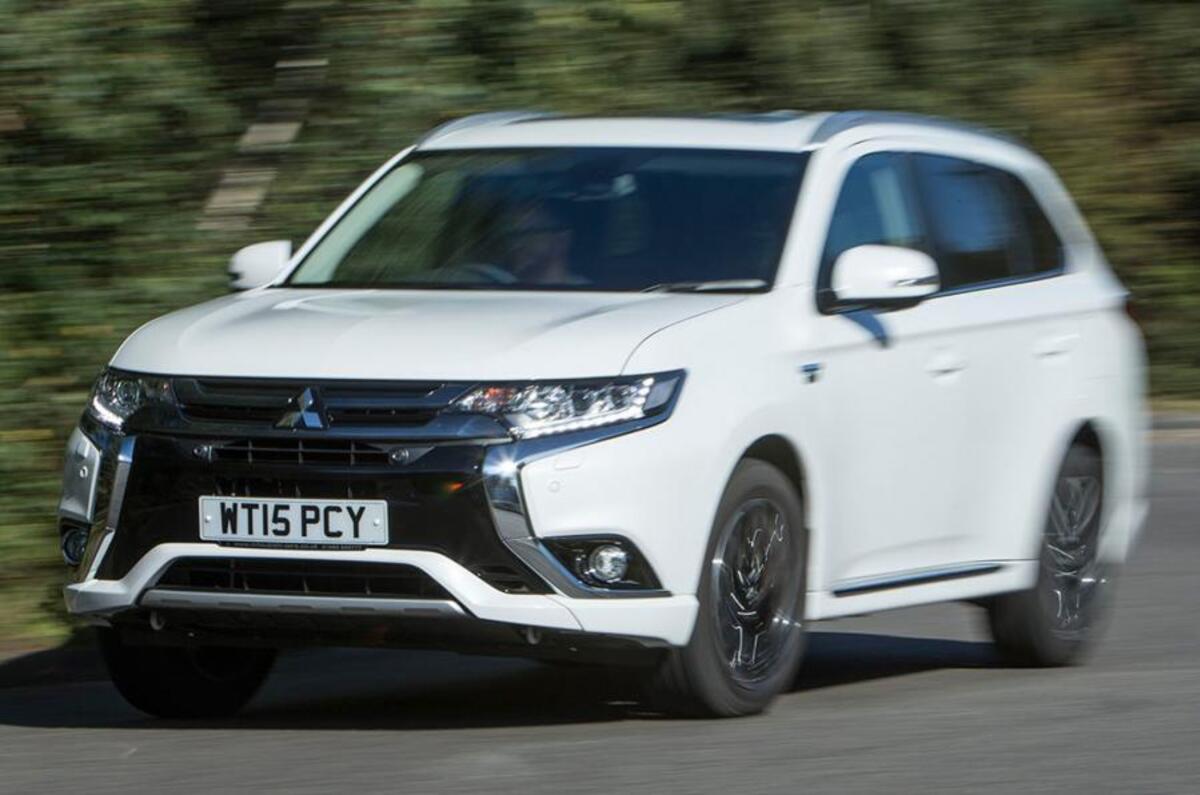Sales of Britain’s best-selling electrified vehicle, the Mitsubishi Outlander PHEV, are unlikely to suffer a long-term drop-off, despite the government incentive to buy one halving to £2500 from this month.
That’s the view of Mitsubishi UK boss Lance Bradley, who confirmed that Mitsubishi had reached its maximum allocation of electric car grants in the run-up to the end of the £5000 incentive. Bradley expects the initial lull following record-breaking registrations will be brief because buyers can still make substantial tax savings with the car.
“We never expected the grant to last forever, we just asked for a phased removal, and while this change has come quicker than we hoped, we expect to maintain momentum,” said Bradley. “From day one we were bold with pricing, and we plan to stay that way.
“Sure, the Outlander will cost more, but the people who were shrewd about the incentive rushed to buy one; I suspect everyone else thinking about it will investigate further and see there is still a substantial incentive, and that the car has enough advantages to pay back the extra initial cost.”
Mitsubishi UK sold just over 31,000 cars in 2015, up more than 10% on 2014, and driven primarily by PHEV sales.
There are now three categories of government grant for electric cars: a £4500 grant for vehicles with sub-50g/km CO2 emissions and a full electric range of at least 70 miles, a £2500 grant for cars emitting less than 50g/km and a range of 10 to 69 miles, and the same amount off cars with 50-75g/km emissions and a range of at least 20 miles. Cars costing more than £60,000 new are no longer eligible for a grant.




Join the debate
Add your comment
2018/19 the death of Hybrids
Classification
Telsa don't make a hybrid.
xxxx wrote: The Apprentice
True but the tax bandings are rising just as fast on pure EV's (although there a year behind hybrids) so the effect will be the same, they are not cheap cars but the ultra low BIK rates have negated that so far. Now as the rates ramp up then the tax will rise hugely. Also as a user myself of the rapid charge network, I can tell you it's pretty busy already and can be hard to get a go, in 3 years time it will be really overloaded as many more makes of PHEV and EV will be sold, making using a pure EV a lot of hassle.
2018/19 the death of Hybrids
True cost?
I was left with the feeling that the vehicle only really satisfied the requirement of avoiding tax rather providing any real environmental benefit. Perhaps in an urban environment it may work better, but then why would you buy an SUV?